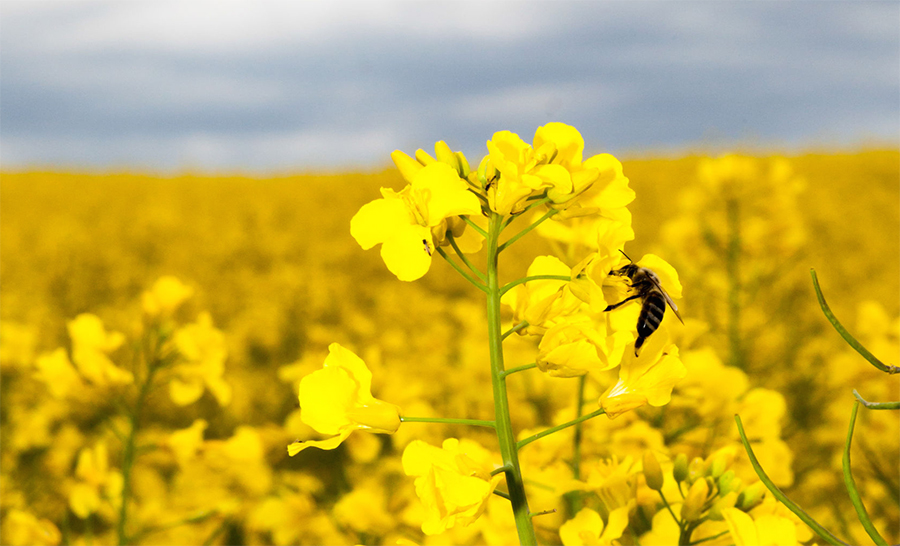
The neonicotinoid ban has resulted in far greater damage to oilseed rape crops, according to a third of Scottish arable farmers.
Growers are currently unable to use neonicotinoids, which are normally present on seed dressings for oilseed rape, due to concerns they are harmful to bees.
A Scottish Government survey about the impact of the restrictions on Scottish winter oilseed rape (WOSR) crops revealed that although damage to crops during 2016 was minimal, more than a third of growers felt the lack of the seed dressing had led to greater crop damage.
Slug attacks, the effect of a ban on neonicotinoid seed treatments and most importantly, flea beetle damage combined with dry conditions in autumn has been put to blame for poor establishment.
A report published following the survey said: “A small proportion of growers stated that the restrictions will reduce the likelihood of their growing WOSR in future. However, other growers appear to be relatively unaffected and it is clear that the impact of the restrictions is less severe in Scotland than in other regions of the UK.”
Scotland less affected than England
It said Scottish growers were less affected by the neonicotinoids ban than their counterparts south of the border due to lower pest pressure and resistance levels to the approved foliar insecticides available.
In February, the National Farmers Union (NFU) announced an application for emergency useof neonicotinoid seed treatments to alleviate insect pest pressure on a proportion of the English oilseed rape crop.
It comes as news that a recent survey of 400 arable farmers who all grow winter oilseed rap reported that 8.3 per cent of the crop this year has failed.
The report continued: “In the interim, it appears that Scottish growers can, on the whole, continue to successfully cultivate WOSR during the moratorium on neonicotinoid use.”
“At a UK level, new research and guidance about alternative control strategies is being formulated. This will determine which actions are best adopted in future integrated pest management strategies for oilseed rape.”
